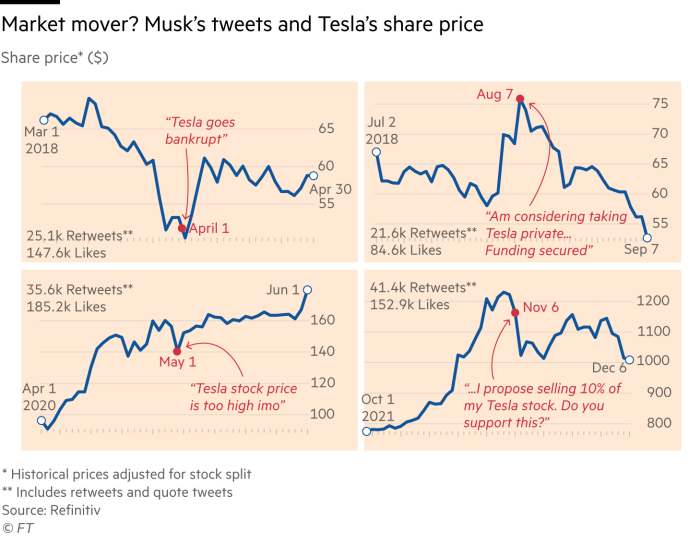UK regulator tackles Apple and Google mobile duopoly
This article is an on-site version of our #techFT newsletter. Sign up here to get the complete newsletter sent straight to your inbox every weekday
Britain’s Competition and Markets Authority, which prevented Facebook’s acquisition of image platform Giphy two weeks ago, is now threatening to be a major thorn in the side of both Apple and Google.
An interim report for the CMA’s market study of mobile ecosystems spans 681 pages, including appendices, and focuses on the power the two tech giants wield through the iOS and Android operating systems and their respective browsers and app stores that dominate mobile devices.
“Because Apple and Google control the way that browsers perform on their devices; and also set the terms for access to their app stores for native apps, they are able to limit competition from third parties in various ways,” it concludes.
Both companies are likely to be designated digital platforms with “strategic market status” under a new regulatory regime that would apply codes of conduct and make interventions to promote competition and protect consumers. The power of both was “likely to necessitate a package of interventions”, the report says.
Its authors say they are not currently exploring the most radical step being suggested to end conflicts of interest. This would mean banning Apple and Google from operating app stores and forcing them to divest. “Similar benefits could be delivered through less intrusive interventions,” they say.
Nevertheless, the CMA is flexing its muscles and the forthcoming regime will boost its corrective capabilities. A final report with recommendations for specific interventions is expected in six months’ time. Any changes it imposes could be felt around the world, given the global approach Apple and Google take to updating their software and services.
The Internet of (Five) Things
1. US to blacklist Chinese drone maker
The Biden administration will place eight Chinese companies including DJI, the world’s largest commercial drone manufacturer, on an investment blacklist for their alleged involvement in the surveillance of Uyghur Muslims.
2. UK ad regulator issues crypto rebuke
The Advertising Standards Authority has taken the cryptocurrency industry to task for “widespread” problems with misleading and irresponsible ads, issuing rulings against several of the biggest groups, including Coinbase and eToro. Meanwhile, Binance has moved to restrict UK customer access to crypto derivatives, while Isda, the derivatives trade association, says it is developing common legal standards and templates for derivatives linked to the $3tn crypto market to cover “potential disruption events”.
Daily newsletter

#techFT brings you news, comment and analysis on the big companies, technologies and issues shaping this fastest moving of sectors from specialists based around the world. Click here to get #techFT in your inbox.
3. Paytm slumps again
Paytm shares fell more than 12 per cent on Wednesday after the anchor investor lock-in period ended, drawing more scrutiny to the fintech company. Its November listing was ranked among the worst in India’s stock market history.
4. Battle of the streamers sparks real estate frenzy
The pandemic supercharged streaming services, but also created production problems for content producers. Now, there is a race to grab sound stages to shoot on, luring private equity groups into what had previously been a niche market.
5. FT Person of the Year: Elon Musk
Despite facing an army of doubters in the traditional auto industry and on Wall Street, the controversial Tesla chief executive has triggered a historic shift towards electric vehicles. That is why the FT is naming Musk its Person of the Year. Richard Waters has interviewed him and the FT’s editor Roula Khalaf explains the choice in a letter to readers.

Tech tools — Oppo Air Glass
Chinese smartphone maker Oppo unveiled its first flagship folding phone, the Find N, at its innovation day this week, along with this augmented reality device, the Air Glass. Available in the first quarter of 2022, but only in mainland China, it features Oppo’s Spark Micro Projector and supports four different user interactions through touch, voice, head movement and hand motion. It comes in either a silver half-frame “monocle” or a black full-frame and there is a magnetic port to attach it to conventional glasses. Applications that will project information on to the lens include weather, calendar, health, teleprompter, translation and navigation.
